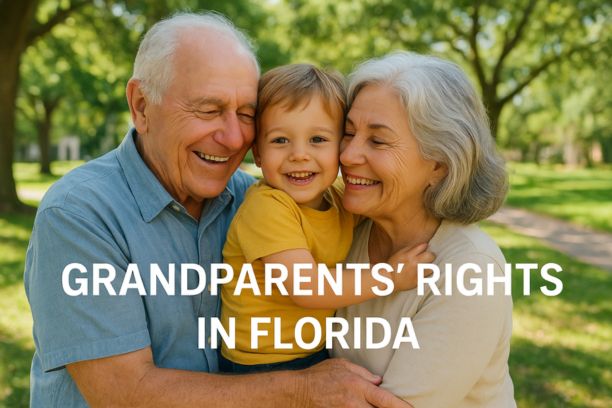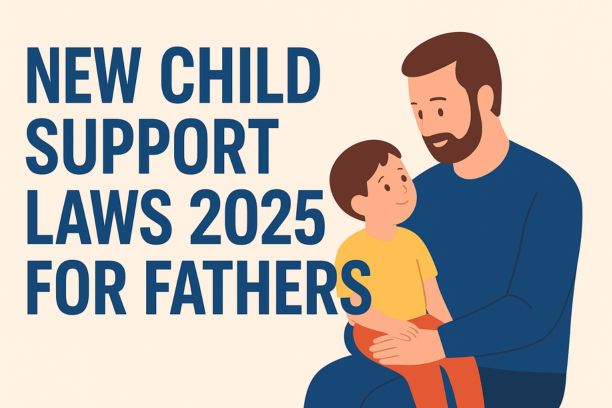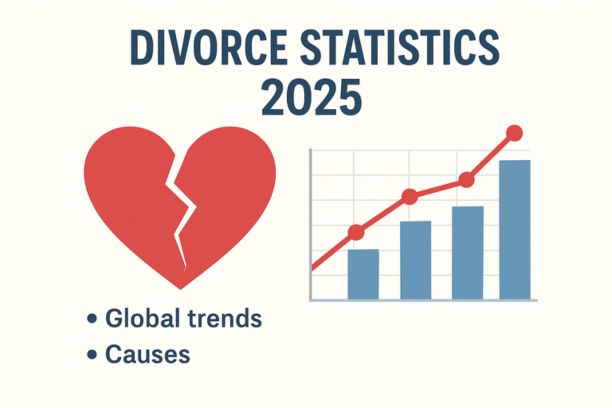
Grandparents’ Rights in Florida: Visitation, Custody & Legal Options Explained (2025 Guide)
The bond between a grandparent and grandchild is one of the most meaningful relationships in life — filled with warmth, guidance, and unconditional love. But what happens when that bond is disrupted by family conflict, divorce, or tragedy?
In Florida, grandparents often face an uphill legal battle to maintain contact with their grandchildren. While parental rights are strongly protected under state law, there are specific situations where grandparents can seek visitation or even custody. This 2025 guide explains Florida grandparents’ rights — including visitation laws, custody rules, and steps you can take to stay connected with your grandchildren.
Understanding Grandparents’ Rights Under Florida Law
Florida’s family law system places a strong emphasis on parental autonomy, meaning that parents generally have the right to decide who may spend time with their children. Courts assume that a fit parent acts in the best interest of their child — and that includes choosing whether grandparents can have contact.
However, Florida law does recognize limited exceptions. Grandparents can petition for visitation or custody only in very specific circumstances, usually when one or both parents are unable or unfit to care for the child.
Two key statutes govern these rights:
- Florida Statute §39.509 – outlines visitation rights for grandparents when a child is in state custody or foster care.
- Florida Statute §751 – allows grandparents (and other relatives) to seek temporary or concurrent custody if the parents cannot safely care for their children.
These laws create narrow but important opportunities for grandparents to remain part of their grandchildren’s lives.
When Can Grandparents Request Visitation in Florida?
In most cases, Florida courts will not override a parent’s decision to deny visitation. However, there are rare exceptions when the court may allow a grandparent to visit if it’s proven to be in the child’s best interest.
Grandparents may file for visitation when:
- Both parents are deceased, missing, or in a persistent vegetative state, or
- One parent meets one of those conditions and the other parent has been convicted of a violent felony or a similar serious offense.
Even in these cases, visitation is not automatically granted. The court will conduct a detailed review considering:
- The grandparent’s relationship with the child
- The child’s emotional and physical well-being
- Any potential harm caused by granting or denying visitation
If the court finds that visitation supports the child’s welfare, it may issue an order allowing supervised or structured visitation.
Example Scenario:
A grandmother in Coral Gables petitions for visitation after her daughter’s death. The child’s father, who has a felony conviction, denies contact. The court may consider her request if she can show a strong, existing relationship and that visits would benefit the child emotionally.
Grandparents’ Rights When a Child Is in Foster Care
When a child is removed from parental custody due to neglect, abuse, or unsafe conditions, Florida law offers grandparents an opportunity to stay involved.
Under Fla. Stat. §39.509, grandparents and step-grandparents are typically allowed reasonable visitation unless the court determines it would harm the child.
Courts may deny visitation if a grandparent:
- Has a history of domestic violence or child abuse
- Has been convicted of a violent crime or sexual offense
- Misuses drugs or alcohol
- Attempts to interfere with the foster placement or reunification process
If visitation is approved, grandparents must coordinate visits through the child’s assigned caseworker, not directly with the foster parents or residential care facility.
Important Note: If a grandparent attempts to arrange contact between the child and their biological parents without permission, visitation rights can be terminated immediately.
Can Grandparents Get Custody in Florida?
In certain cases, grandparents can go beyond visitation and seek custody or guardianship of their grandchildren.
According to Fla. Stat. §751, grandparents can petition the court for temporary custody if the parents are unable or unwilling to care for the child. Common reasons include:
- Parental substance abuse
- Incarceration
- Domestic violence
- Mental illness or incapacity
- Abandonment or neglect
Florida courts generally prefer placing children with extended family members (called kinship care) instead of foster homes, provided it’s safe and in the child’s best interest.
However, the process is not automatic. Grandparents must demonstrate:
- A close, positive relationship with the child
- A safe and stable home environment
- That custody serves the child’s best interests
Example:
A grandparent in Miami-Dade County successfully petitions for custody of her 6-year-old grandson after both parents enter rehabilitation. The court grants her temporary custody while the parents work toward reunification, ensuring the child remains with family instead of entering foster care.
Overcoming Legal Challenges
Seeking visitation or custody in Florida can be emotionally draining and legally complex. Common challenges include:
- Strict limitations: Courts rarely override parental authority unless clear harm is proven.
- Evidentiary burden: Grandparents must show strong proof that contact benefits the child.
- Lengthy legal process: Petitions often require court hearings, mediation, and home evaluations.
Tips to Strengthen Your Case
- Document involvement: Keep records, photos, and communications that show your consistent presence in the child’s life.
- Avoid conflict with parents: Courts favor cooperative grandparents who prioritize the child’s welfare over personal disputes.
- Seek mediation early: Mediation may help repair relationships and avoid litigation.
- Get legal guidance: While this blog provides educational insight, consulting a family law attorney for personalized advice is crucial.
Coral Gables & Miami-Dade County: Local Perspective
For grandparents in Coral Gables and surrounding Miami-Dade communities, family court cases follow the same state laws but are handled locally at the Miami-Dade County Family Court.
This court emphasizes family reunification and child welfare, often encouraging mediation before litigation. Local organizations like the Family Court Services Division and Grandparents Raising Grandchildren of Miami-Dade provide resources, workshops, and counseling for families navigating custody and visitation issues.
Local Insight:
Coral Gables families can access mediation and support through the Miami-Dade Family Mediation Program, which helps relatives resolve visitation disputes without a full court hearing.
Resources for Florida Grandparents
Here are some trusted resources for guidance and support:
| Resource | What It Offers |
|---|---|
| Florida Department of Children and Families (DCF) | Child welfare information and kinship care support programs. |
| Florida Kinship Center (University of South Florida) | Counseling, legal information, and training for grandparents raising grandchildren. |
| Grandfamilies.org | State-by-state summaries of grandparents’ rights laws. |
| Miami-Dade Family Court Self-Help Center | Assistance with filing petitions, legal forms, and self-representation. |
FAQs About Grandparents’ Rights in Florida
1. Can grandparents get visitation rights if the parents are divorced?
Only under special circumstances — typically if one parent is deceased, missing, or unfit, and visitation is in the child’s best interest.
2. Do grandparents have rights if their grandchild is adopted?
Once a child is adopted by non-relatives, grandparents’ rights are usually terminated unless the adoption is by a stepparent.
3. Can grandparents seek emergency custody?
Yes, if the child faces immediate danger due to abuse, neglect, or abandonment. Emergency petitions can result in temporary custody.
4. Is mediation required before filing for visitation?
While not always mandatory, courts strongly encourage mediation as a first step before legal action.
5. How much does it cost to file a visitation petition?
Costs vary by county but typically range from $300–$500, plus any attorney or court service fees.
Conclusion
Florida law places a high value on parental rights, which can make it difficult for grandparents to secure visitation or custody. However, understanding your options — and acting within the boundaries of the law — can help protect your bond with your grandchildren.
Whether you’re in Coral Gables, Miami, or anywhere in Florida, remember: you’re not powerless. The legal system recognizes the important role grandparents play in a child’s life — and with the right knowledge, preparation, and persistence, you can take steps to stay connected to the ones you love most.



